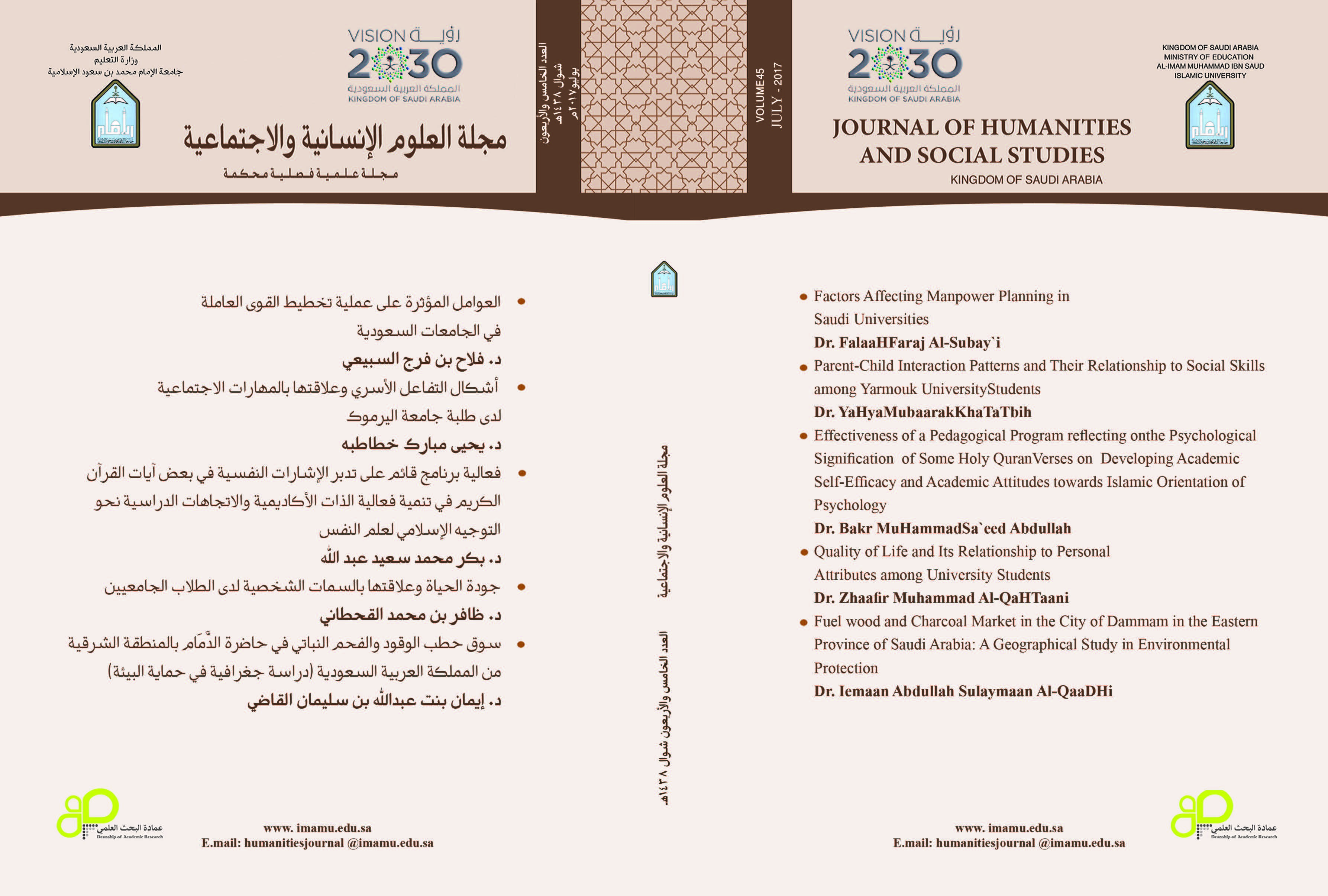Parent-Child Interaction Patterns and Their Relationship to Social Skills among Yarmouk University Students
Keywords:
parent-child interaction patterns, social skills, Yarmouk University studentsAbstract
This study aims at investigating the parent-child interaction patterns in relation to social skills among the students of Yarmouk University. The sample of the study consists of (452) female and male students. The Parent-Child Interaction System Scale prepared by Al-Dhuwayb (2002) and the Social Skills Scale of Adolescents prepared by AbdulHameed (2012) were used with the participants. The results of the study show a statistically significant positive relationship between the two patterns of Parent-Child interaction (father-child interaction and mother-child interaction) and the social skills scale among University students in the total score and dimensions. The results also show that the means and standard deviations of the father-child interaction are higher than the mother-child interaction. Moreover, they show that the most common parent-child interaction style is the democratic style, and the most common social skill domain is the domain of assertiveness skills and peer relationships. Furthermore, the study shows that there are statistically significant differences in the parent-child interaction patterns due to gender in favor of males, and the level of the father's education. However, the posteriori comparisons show no differences among secondary school certificate, bachelor degree, and postgraduate degrees holders on all Interaction System Scale and no statistically significant differences due to the variable of specialization and level of the mother’s education. On the other hand, the results also show statistically significant differences on the Social Skills Scale attributed to gender in favor of male on the Social Skills Scale of adolescents. In addition, there are statistically significant differences due to the level of the mother's education regarding the domain of self-management, differences in favor of the postgraduate category in all domains of the Social Skills Scale of adolescents, and no statistically significant differences due to the specialization or the level of the father's education in all domains of the Social Skills Scale of adolescents. Finally, the results of simple linear regression analysis show the predictability of social skills through the parent-child interaction patterns (father-child interaction and mother-child interaction).




